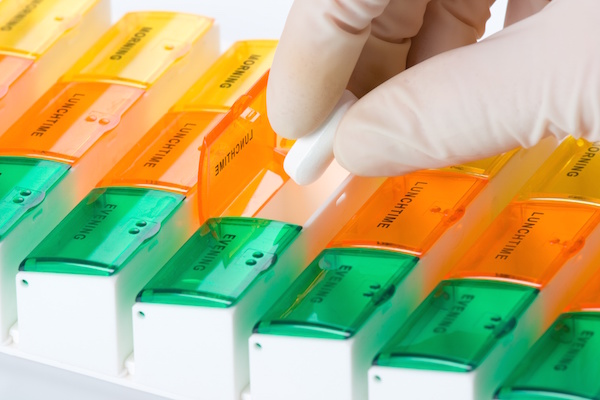MONDAY, Dec. 14, 2015 (HealthDay News) — Women who take antidepressants during the final two trimesters of pregnancy may put their children at risk for autism spectrum disorder, a new Canadian study suggests.
Researchers said it seemed that children had an 87 percent increased risk of autism if their mothers used antidepressants during the second and third trimester.
The risk of autism rose even higher if a mother took a type of antidepressant called a selective serotonin reuptake inhibitor, or SSRI, the study found. These drugs include escitalopram (Lexapro), fluoxetine (Prozac) and sertraline (Zoloft).
However, experts noted that the study findings don’t establish a clear cause-and-effect link between antidepressants and autism.
Pregnant women should not stop taking prescribed antidepressants without consulting their doctor, the experts said.
“It is critical to caution currently pregnant women who are on antidepressants who read about this study to not panic and suddenly discontinue their medication,” said Dr. Alan Manevitz, a clinical psychiatrist at Lenox Hill Hospital in New York City.
“They could go through withdrawal symptoms that could be a higher risk than continuing on their medicine. They should consult their obstetrician and psychiatrist before deciding anything,” said Manevitz, who was not involved in the study.
The new findings may help to explain — at least partly — the increase in autism in recent years, said study senior author Anick Berard, a professor with the University of Montreal School of Pharmacy.
Berard said antidepressant use among U.S. pregnant women increased from 5.7 percent in 1999 to 13.3 percent in 2003, while the prevalence of autism has increased from 0.04 percent in 1966 to approximately 1 percent today.
“The steep increase in the diagnosis of autism has coincided with the huge increase in antidepressant use during pregnancy,” she said.
Although the causes of autism remain unclear, previous studies have concluded that both genetics and environment can play a role, Berard said. Children with the disorder usually display social challenges and communication difficulties.
The new study, published Dec. 14 in JAMA Pediatrics, was not a controlled, randomized trial, which is the gold standard of scientific research. Instead, it used data on all pregnancies in Quebec from 1998 through 2009. Researchers identified more than 145,000 full-term infants, of whom 1,054 were diagnosed with an autism spectrum disorder.
There were 4,724 infants exposed to antidepressants while their mother was pregnant; about 89 percent were exposed during the first trimester and 54 percent during the second or third trimester.
The researchers found that any antidepressant use in the second or third trimester seemed to increase autism risk by 87 percent. Earlier antidepressant use did not appear to have an effect.
SSRI use, in particular, more than doubled a child’s risk of autism, the study authors said.
Still, the overall risk of any one child developing autism remains very small.
Serotonin is a brain chemical that is critical to fetal brain development, which largely occurs during the second and third trimesters, Berard said.
SSRIs work by interfering with the function of serotonin, and in this way might affect brain development in the unborn child, she said.
That theory makes sense in light of what’s known about serotonin, said Dr. Paul Wang, head of medical research for Autism Speaks.
However, in this study autism risk also increased more than fourfold for children whose mothers used two or more antidepressants during the second or third trimester, Wang said.
That might mean it’s “the severity of a mom’s depression that’s related to autism, not the medications she’s taking,” Wang said, noting that genes related to depression also have been linked to autism.
Bryan King, a psychiatrist at Seattle Children’s Hospital, wrote in an accompanying journal editorial that earlier studies have suggested that autism and depression share underlying risk factors.
Furthermore, he wrote, “in the ongoing search for environmental contributions to the
risk of [autism spectrum disorders], in utero exposures are increasing as a focus. It is
unlikely that there will be a straight line from such exposures
that leads unwaveringly to [autism spectrum disorders].”
Also, a registry study such as the Canadian study can’t determine whether the children who developed autism would have developed typically if they hadn’t been exposed to antidepressants, King noted.
Deciding whether to keep taking antidepressants during pregnancy is a difficult decision for women struggling with depression, Manevitz said.
“Untreated depression can have serious impact on both the pregnant mom-to-be and the unborn infant,” he said. Depressed women might eat poorly, not take prenatal vitamins, miss doctor’s appointments or engage in risky behaviors like smoking or drinking.
But many depressed expecting mothers are dealing with mild to moderate depression, and might be able to get by without medication, Berard said.
For example, clinical trials have shown psychotherapy or exercise to be viable treatment options for the mildly or moderately depressed, Berard said.
“Antidepressants are not the only alternative for depressed women,” she said.
More information
For more on autism, visit the U.S. Centers for Disease Control and Prevention.
Copyright © 2026 HealthDay. All rights reserved.

